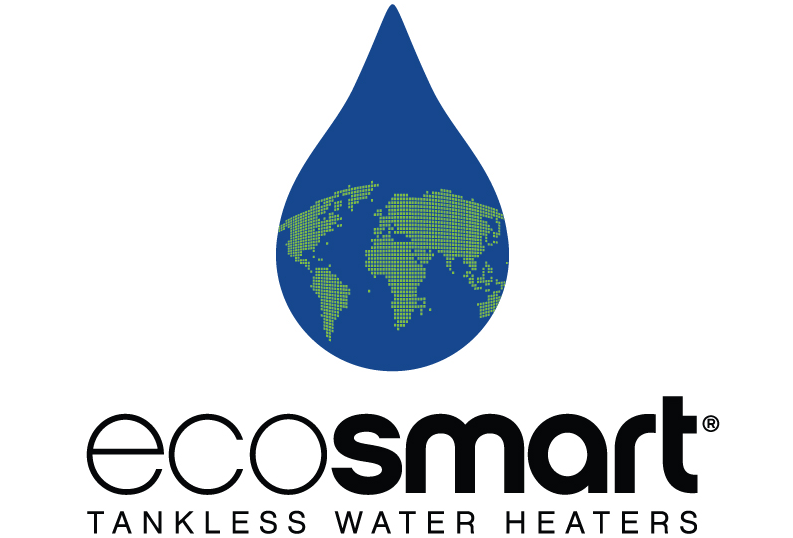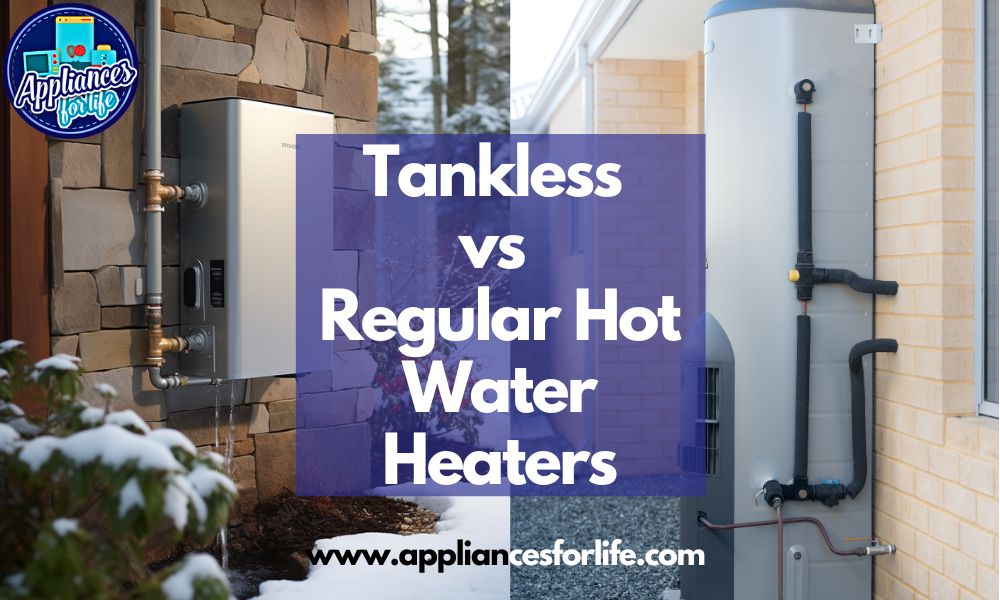- Water heaters play a pivotal role in households by providing the essential comfort of hot water for various daily activities.
- In water heating solutions, tankless water heaters stand out as innovative and efficient options.
- A traditional water heater, or a hot water boiler, has been a familiar workhorse in households for years.
- When deciding between tankless vs regular hot water heaters, understanding the cost implications is crucial.
Traditional water heaters can deplete the hot water in the tank, leading to chilly surprises mid-shower.
The Role of Water Heater:
Water heaters play a pivotal role in households by providing the essential comfort of hot water for various daily activities. These devices ensure a steady supply of warm water for bathing, cleaning, and other domestic needs. In this article, we delve into a crucial comparison: tankless vs regular hot water heaters. Our evaluation examines each type’s distinctive features, benefits, and drawbacks. In the process, aiding you in making an informed decision for your home’s hot water needs.
How We Review the Products?
As seasoned product reviewers, our expertise lies in providing comprehensive and insightful evaluations of various products across diverse categories. With a keen eye for detail and a commitment to delivering objective assessments, we excel at examining product features, performance, and overall value. Our reviews are characterized by their balanced analysis, addressing each item’s strengths and potential limitations.
By drawing upon our in-depth understanding of consumer preferences and industry trends, we strive to offer readers valuable insights that assist them in making informed purchasing decisions. With a track record of delivering trustworthy and informative reviews, we are dedicated to confidently helping consumers navigate the ever-expanding landscape of products.
Section 1: Understanding The Tankless vs Regular Hot Water Heater
In water heating solutions, tankless water heaters are innovative and efficient options. These systems redefine the way we access hot water. A tankless water heater, also known as an on-demand water heater, operates by heating water directly as it flows through the unit. Unlike traditional water heaters that store and heat a fixed amount of water in a tank, tankless models eliminate the need for a storage tank entirely.
They embrace the on-demand heating principle and offer space-saving benefits. When the time comes for home upgrades, consider replacing your traditional water heater with a tankless option. Enabling you to enjoy efficient and on-demand hot water. Here are the pros and cons of tankless water heaters:
1.2 The Pros of Going Tankless
Choosing a tankless water heater has many advantages that can significantly enhance your hot water experience and overall energy efficiency.
First and foremost, the allure of an endless hot water supply sets tankless water heaters apart. Tankless units provide hot water on demand.
Energy efficiency takes center stage with tankless water heaters. These units only heat water when needed, eliminating the constant energy consumption of maintaining a hot water reservoir.
Additionally, tankless water heaters boast a significantly longer lifespan than their traditional counterparts.
One of the most noticeable conveniences of the tankless vs regular hot water heater is their liberation from the constraints of a storage tank. No more worrying about finding space for a large, unwieldy tank.
According to Statista, the worldwide market value of water heaters will remain steady over the next few years. Growth will stay within 26.2 to 26.4 billion U.S. dollars annually. Since 2015, the global water heater market has not surpassed the $30 billion U.S. dollar threshold.
1.3 Cons to Consider
While tankless water heaters offer a range of benefits, it’s important to weigh their potential drawbacks before making a decision.
One primary consideration is the higher upfront cost associated with tankless water heaters. As a result, the initial investment can be a bit daunting for some homeowners. Before making any decisions, weighing the benefits against the tankless water heater cost is essential.
Another factor to consider is the limited flow rate for simultaneous use. Although tankless water heaters provide hot water on demand, they have a specific flow rate capacity.
Section 2: Regular Hot Water Heaters: The Basics
2.1 Traditional Water Heaters Explained
A traditional hot water heater, or a hot water boiler, has been a familiar workhorse in households for years. These water heaters operate straightforwardly, relying on a storage tank to store and heat water.
A large tank, typically made of steel or glass-lined steel, is used. It holds a predetermined amount of water in the heart of a traditional water heater. The water in the tank is constantly heated to a set temperature. This ensures that hot water is readily available whenever a tap is turned on.
2.2 The Appeal of Regular Water Heaters
Traditional water heaters hold a distinct charm due to their simplicity, accessibility, and cost-effectiveness.
One of their notable advantages is the lower initial cost compared to tankless water heaters. The upfront investment for a traditional water heater, including the unit and installation, is generally more budget-friendly.
The simplicity of operation and installation is another factor that adds to their appeal.
Furthermore, traditional water heaters offer a variety of sizes and options to suit different household needs.
2.3 Drawbacks to Consider
While regular water heaters offer simplicity, they come with a set of drawbacks that can impact their performance and efficiency.
One notable drawback is the limited hot water supply during peak usage periods. Since traditional water heaters have a fixed storage tank, a finite amount of hot water is available at any time.
Energy efficiency is another concern associated with regular water heaters. The continuous heating process that keeps the stored water hot increases energy consumption.
Additionally, standby heat loss poses an issue with traditional water heaters. Even when you’re not using hot water, the heater continues to heat the water in the tank. The constant heating leads to heat loss through the tank walls.
Section 3: Cost Considerations and Installation
3.1 Comparing Costs: Tankless vs Regular Hot Water Heaters
How much does a hot water heater cost? The initial purchase price is one of the most noticeable differences. A tankless unit generally costs more upfront than regular water heaters when comparing a tankless vs regular hot water heater. This initial investment can be a consideration for those with a specific budget.
Long-term energy savings are a significant advantage of tankless water heaters. Their on-demand heating mechanism means they only consume energy when hot water is needed.
Maintenance and repair costs are another aspect to consider. Traditional water heaters involve simpler technology and fewer components, which can lead to lower maintenance and repair expenses. On the other hand, tankless water heaters require periodic maintenance to ensure optimal performance.
3.2 Tankless vs Regular Hot Water Heater: Installation Process and Timelines
How long does it take to install a water heater? We will help you understand the installation process and timelines for a tankless vs regular hot water heater.
Tankless water heater installation involves a slightly more complex process due to its advanced technology. Professionals typically need to assess your home’s electrical or gas supply. Installing a tankless water heater can take several hours to a day, depending on the specifics of your home’s setup specifics.
In contrast, installing a regular water heater is generally a more straightforward process. That only requires connecting the unit to your home’s plumbing and gas or electricity supply.
Section 4: Exploring Hybrid Water Heaters and Other Options
4.1 Hybrid Water Heaters
Hybrid water heaters emerge as a compelling middle-ground solution in the battle between tankless and regular hot water heaters. They blend tankless and regular water heaters best to offer a balanced hot water experience.
These innovative systems combine tankless and regular heaters elements to create a hybrid design. Like tankless water heaters, hybrids offer on-demand heating, ensuring a continuous hot water supply when needed. However, unlike purely tankless systems, hybrids also feature a small storage tank.
4.2 Popular Brands of Water Heaters
In the world of tankless vs regular hot water heaters, several reputable brands stand out, offering a range of options to suit diverse preferences and needs.
Tankless Water Heater Brands:

Renowned for its advanced technology and efficiency, Rinnai offers a variety of tankless water heaters. Their models come equipped with precise temperature control and compatibility with smart home systems.
Pros:
- The water heater comes with Smart-Circ intelligent Recirculation technology. It can understand your water consumption habits. The system intelligently arranges pump and recirculation functions, ensuring optimal energy efficiency and added convenience.
- The design is innovative, with several venting options.
- It has a durable build.
- The water heater is compatible with various spaces, accommodating various installation environments.
Cons:
- Tankless water heaters do not have a warm-up warning period. Care should be taken as the hot water is dispensed instantly.
| Non-condensing. RE-Models | Non-condensing. REP-Models | Condensing RUCS-Models | Condensing RU-Models | |
| Energy Star Qualified | ✘ | ✘ | ✘ | ✔ |
| Available in Natural Gas or Propane | ✔ | ✔ | ✔ | ✔ |
| Indoor and Outdoor versions are available | ✔ | ✔ | ✔ | ✔ |
| Quick Access Isolation | ✘ | ✔ | ✘ | ✔ |
| GPM’s (gallons/minute) | 2.7–7.6 GPM | 3.1–7.6 GPM | 6.5–7.5 GPM | 7–11 GPM |

Noritz is acclaimed for its compact and space-saving tankless water heaters. They prioritize energy efficiency and offer various models suitable for different household sizes.
Pros:
- Fully condensing tankless water heater
- Advanced heat exchanger design
- Built-in controller
Cons:
- Some reviewers found Noritz customer service slow whenever they needed help.
| Item | Noritz NRC71DVNG | Noritz NRC66DVLP |
| Customer Rating | 4.5 | 4 |
| Item Dimensions | 6.7×13.8×23.6 inches | 6.7×13.8×23.6 inches |
| Sold by | Supply online | NYDIRECT |

Ecosmart specializes in electric tankless water heaters, focusing on energy efficiency and easy installation. Their models are often favored for smaller households and point-of-use applications.
Pros:
- The modern and streamlined design is fitted with a digital temperature display for easy monitoring of the output heat levels.
- Provides energy efficiency of up to 99.8%.
- Made of stainless steel and copper.
- Capable of heating nearly 3.5 gallons per minute at low temperatures.
Cons:
- It may require a higher electrical capacity and installation.
| Item | Eco 8 | Eco 11 | Eco 18 | Eco 24 |
| kW | 8 | 13 | 18 | 24 |
| Max amperage | 33 | 57 | 75 | 100 |
| Voltage: 240 | ✔ | ✔ | ✔ | ✔ |
| Size | 11.5”x8”x3.75” | 11.5”x8”x3.75” | 17”x14”x3.75” | 17”x17”x3.75” |
Regular Water Heater Brands:

Rheem is a well-established brand known for its dependable and efficient traditional water heaters. They offer a variety of sizes and options, catering to different household needs.
Pros:
- Ample Hot Water Supply: With a tank capacity of 47.0 gallons, this water heater can provide a substantial amount of hot water.
- High Wattage for Rapid Heating: The 4500 total watts of heating power enables quick water heating.
- 240V Power Efficiency: Operating at 240V, this electric water heater can efficiently deliver the necessary heating performance.
Cons:
- This RHEEM Water Heater comes with a larger tank size. It, therefore, requires more physical space for installation.
| Item | Rheem 40 Gallon Electric Water Heater | Bosch Thermotechnology Tronic | GE Appliances Point of Use Water Heater |
| Customer Rating | 1 | 4.5 | 4.5 |
| Sold by | Amazon.com | Amazon.com | Amazon.com |

A.O. Smith is recognized for its durable and high-performing water heaters. They provide an array of regular models, including those powered by gas and electricity.
Pros:
- High Capacity: With a 199-gallon tank capacity, this water heater can provide a substantial amount of hot water.
- Commercial-Grade Performance: Designed specifically for commercial use. This water heater is built to withstand heavy demand and usage.
- Energy Efficiency: Despite its larger size and capacity, this water heater’s commercial natural gas fuel source can provide cost-effective and energy-efficient heating.
Cons:
- The AO Smith BTR-199 with its larger tank size and higher capacity, will lead to increased energy consumption. Especially during periods of lower demand. This might result in higher operational costs for businesses.
| Item | AO Smith BTR-199 | Rheem G100-200 | GE Appliances Water Heater | Rheem Mid-Efficiency 8.4GPM |
| Sold by | Surplus Supply | Surplus Supply | Amazon.com | Amazon.com |
| Item Dimensions | 27.75”x27.75”x67.5” | 30.25”x30.25”x66.12” | 14.75”x14.75”x24.5” | 8.88”x13.88”x23.63” |
| Customer Rating | 5 | 3.5 | 4.5 | 4.5 |

Bradford White is respected for its emphasis on quality and longevity. Their regular water heaters feature durable components and are often preferred for commercial and residential applications.
Pros:
- Space-Saving Design: The short model design of this water heater is advantageous for installations where vertical space is limited. It allows for easier installation in compact areas.
- 50-Gallon Capacity: With a 50-gallon tank capacity, this electric water heater can provide ample hot water for typical household needs.
- Reliable Performance: Bradford White is known for producing durable and reliable water heaters. The M250S6DS-1NCWW model is built to deliver consistently hot water, backed by the brand’s reputation for quality and longevity.
Cons:
- Limited Hot Water Capacity: Larger families or homes with higher hot water demands may find this tank size inadequate, especially during peak usage periods.
| Item | Bradford White M250S6DS-1NCWW | Bradford White BWC RE350TR-1NCWW |
| Customer Rating | 2.5 | 3.5 |
| Dimensions | 23”x48”x26” | 22”x22”x60” |
| Sold By | Regina Luxury | Plumber Stock |
Section 5: Making the Decision Tankless vs Regular Hot Water Heater:
5.1 Factors to Consider
As you navigate the decision between tankless versus regular water heaters, several key factors should guide your choice.
When deciding between the two, consider these factors:
Household Size and Usage Patterns:
If you have an enormous household with simultaneous hot water needs. Its on-demand heating mechanism ensures a continuous hot water supply, accommodating multiple users.
Budget Considerations:
If your immediate budget is a concern, regular water heaters generally come with a lower upfront cost. However, weigh this against the long-term energy savings that tankless units can provide.
Long-Term Energy Efficiency Goals:
Reducing energy consumption and minimizing your carbon footprint may be priorities. Then tankless water heaters offer higher energy efficiency and lower operating costs over time.
5.2 Considering User Reviews and Recommendations
When deciding on something as crucial as selecting a water heater, tapping into the experiences of others can provide valuable insights. It’s essential to seek out electric tankless water heater reviews and reviews of regular water heaters for a well-rounded perspective.
We encourage you to explore online platforms and forums where users share their firsthand experiences with different water heater models. Reading reviews can offer insights into various aspects. These include performance, energy efficiency, ease of installation, and long-term reliability.
FAQs
1. Which is better, a tankless or regular water heater?
The choice between a tankless and a regular (traditional) water heater depends on your needs, preferences, and circumstances. Both types have their advantages and disadvantages. As a result, what might be “better” for one person might not be the same for another.
2. Do tankless water heaters save money?
Tankless water heaters can save you money over time. The extent of the savings depends on several factors. These include your hot water usage patterns, energy costs, and the efficiency of the specific tankless unit you choose.
3. What size of the tankless water heater should be used to replace a 50-gallon?
To determine the appropriate size of a tankless water heater, you need to consider the flow rate. You must also know the temperature rise required to meet your hot water demands.
Final Verdict – Tankless vs Regular Hot Water Heaters – Who Wins the Battle?
In selecting the ideal water heater for you, we’ve explored the nuances between tankless and regular options. Let’s recap the key takeaways and reiterate the significance of tailoring your choice to your unique needs.
Throughout this article, we’ve dissected the benefits and drawbacks of both tankless and regular water heaters. Tankless units offer an endless hot water supply, energy efficiency, and an extended lifespan. On the other hand, regular heaters provide a more straightforward installation process and a lower upfront cost. However, regular heaters are accompanied by limitations in hot water supply, energy efficiency, and potential standby heat loss.

